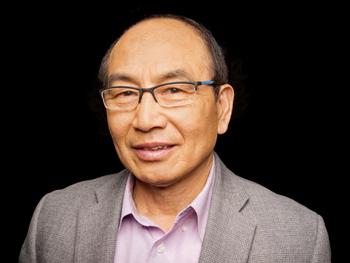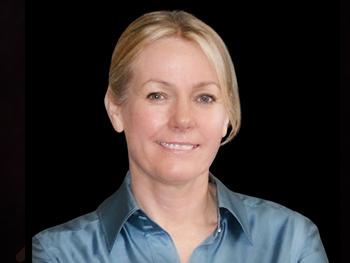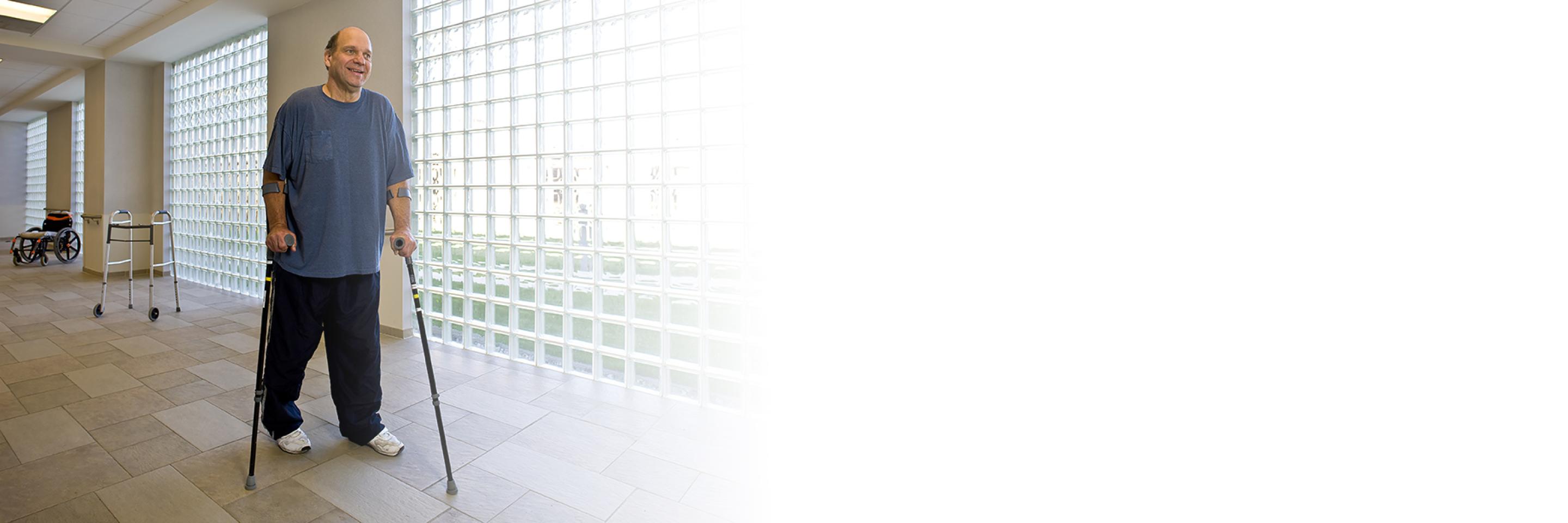
Center for Mobility and Rehabilitation Engineering Research
Taking Steps Toward Recovery
We enhance quality of life for individuals with motor disabilities through translational research and the development of assistive technology that improves mobility and motor function and enhances their ability to participate in school, work, and community activities.
Center Leadership
Center Leadership
Laboratory Leadership
Laboratory Leadership
-
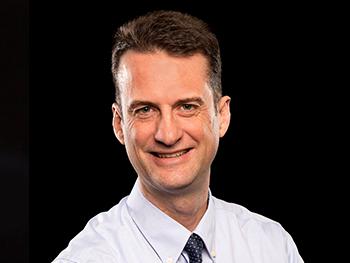
Senior Research Scientist
-
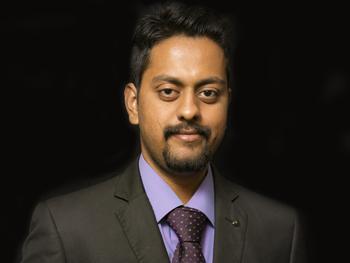
-
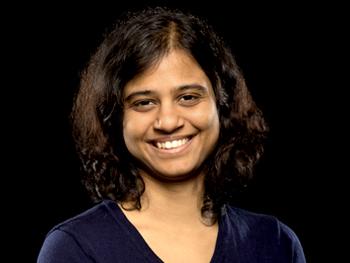
-
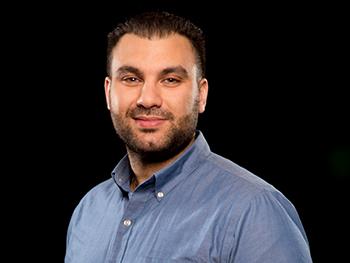
Senior Research Scientist
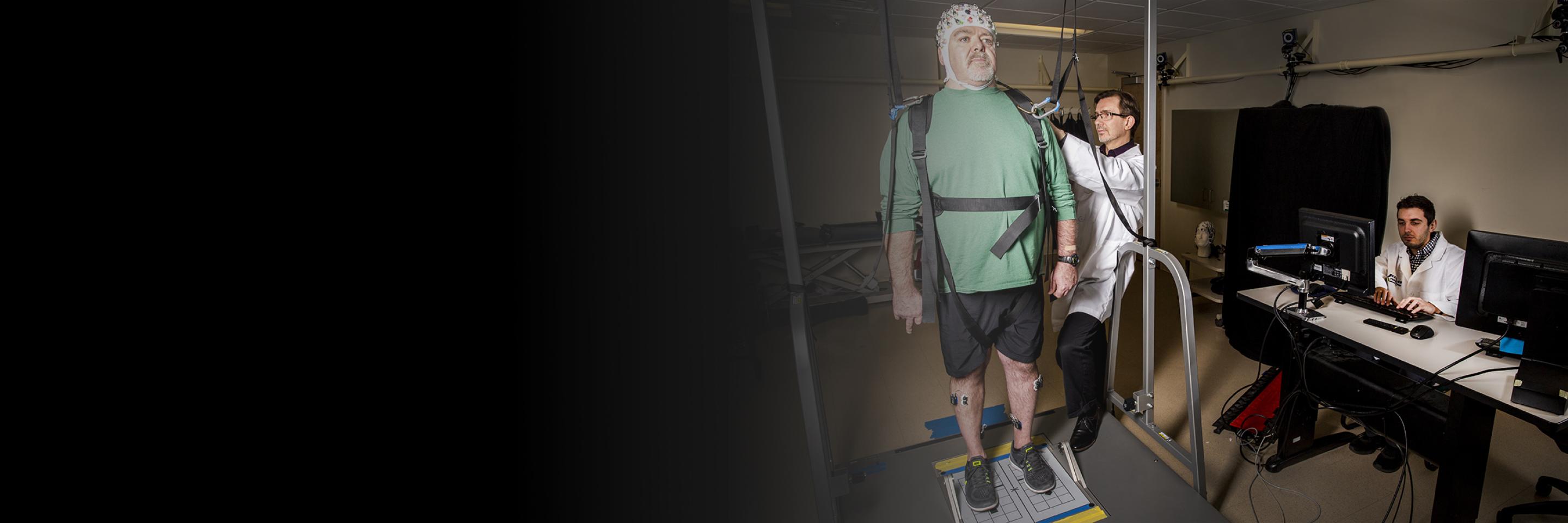
Restoring Mobility through Gait and Balance Training
Restoring balance and mobility is an important first step toward recovery for individuals with disabilities caused by spinal cord injury, stroke, cerebral palsy, arthritis and brain injury. Our scientists apply new technologies that advance rehabilitative care, including robotics, functional electrical stimulation, virtual reality, and the unique research capabilities of the Rocco Ortenzio Neuroimaging Center at Kessler Foundation.
Moving Robotics into Clinical Care
Our scientists have conducted pioneering research in different types of wearable robotics, including the Ekso GT, ReWalk, and Indego. The focus of their robotics research extends beyond restoring mobility to the impact on common complications that affect quality of life, including bone loss, muscle weakness, loss of bowel and bladder function, chronic pain, and sexual dysfunction.
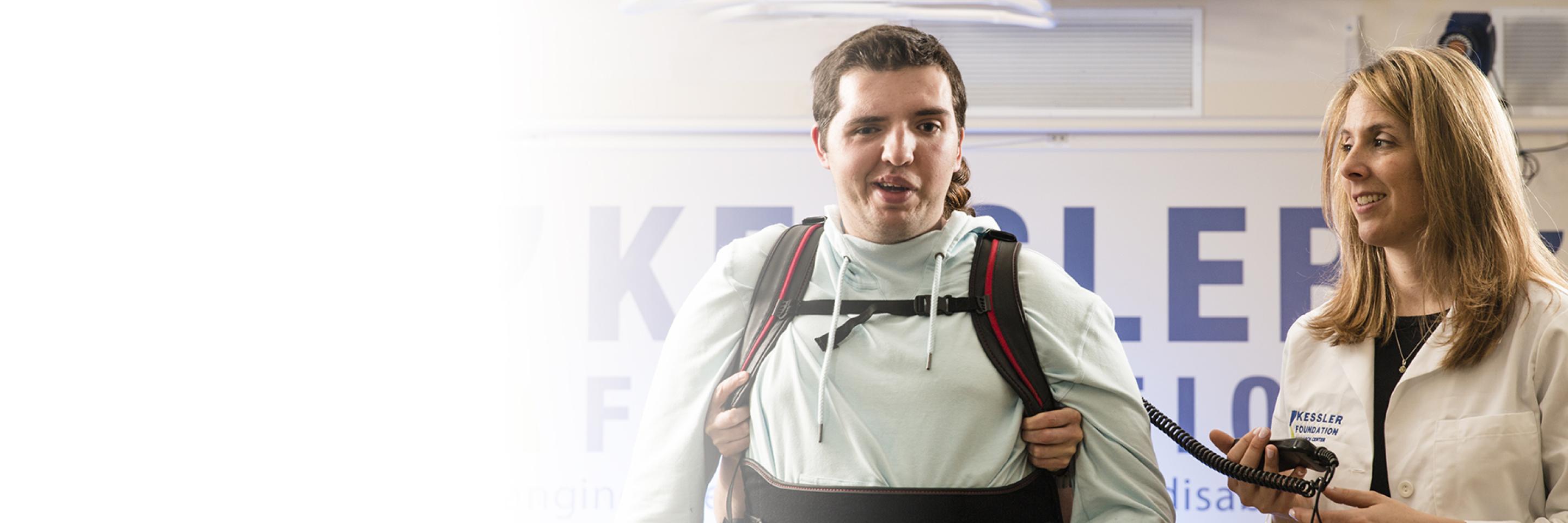
Healing Children with TBI Through Technology
Our research shows that robotic exoskeleton training has the potential for tremendous impact on walking ability, community participation, and quality of life for individuals with brain injury. In a study of adolescents and young adults, participants train in the robotic exoskeleton and wear a Fitbit to record their daily activities. Scientists evaluate the brain changes that occur during motor recovery using a portable, noninvasive technology called fNIRS (functional near infrared spectroscopy). Understanding the changes in brain activity after injury and during recovery helps us design more effective rehabilitation protocols.
Demonstrating Efficacy of Rehabilitation Interventions
During her visit to the Foundation, New Jersey First Lady Tammy Murphy witnessed the impact of Kessler Foundation's research first hand. She received a demonstration of the efficacy of several rehabilitation interventions including spacial neglect and an exoskeleton worn by Natalie B., a young woman with paralysis caused by traumatic spinal cord injury.
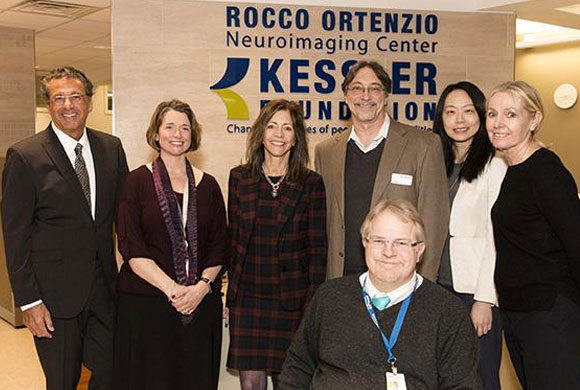
Tammy Murphy, First Lady of New Jersey, visits Kessler Foundation's Rocco Ortenzio Neuroimaging Center. Pictured left to right: Rodger DeRose, President and CEO, Nancy Chiaravalloti, PhD, Tammy Murphy, John DeLuca, PhD, Peggy Chen, PhD, Gail Forrest, PhD, and Trevor Dyson-Hudson, MD.
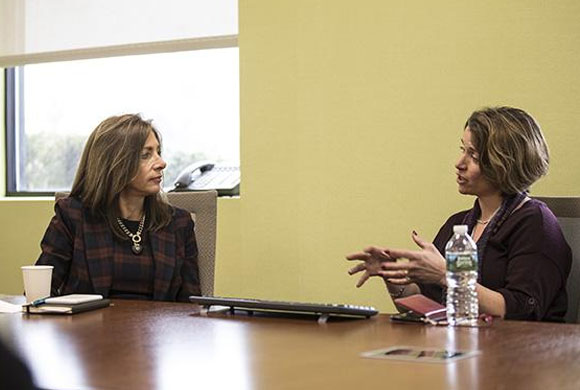
Tammy Murphy sits with Nancy Chiaravalloti, PhD, Director of Neuropsychology and Neuroscience Research and Traumatic Brain Injury Research Centers.
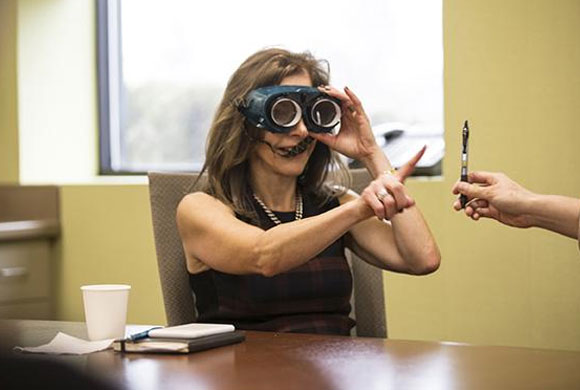
Tammy Murphy tries on prism adaptation glasses used for spatial neglect after stroke.
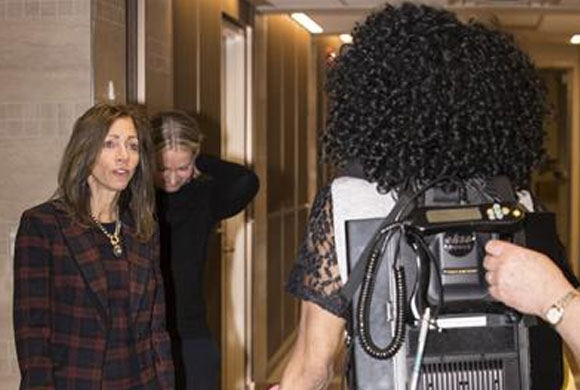
Tammy Murphy watches as Natalie B., a research participant who has sustained a spinal cord injury, walks in our robotic exoskeleton.
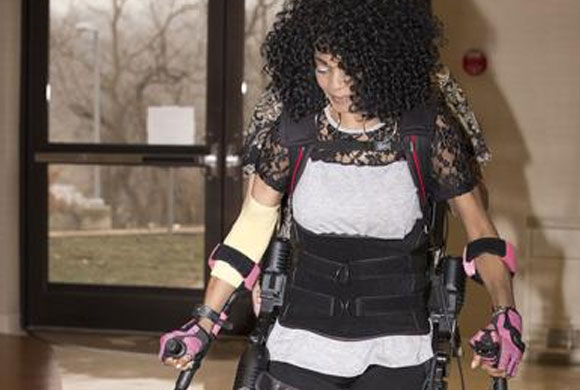
Natalie B. demonstrates Kessler Foundation's robotic exoskeleton at Rocco Ortenzio Neuroimaging Center.
Ghaith Androwis, PhD, customizes assistive devices for wheelchair users with a 3D printer
Improving Mobility for Children with Disabilities
Finding solutions for improving mobility for children with disabilities requires a tailored approach to rehabilitation research. In collaboration with Children’s Specialized Hospital, researchers are testing ways to use 3D printing to customize assistive devices, and studying ways to minimize physical stress for young wheelchair users, enabling them to engage safely in school and community life.
Multimedia
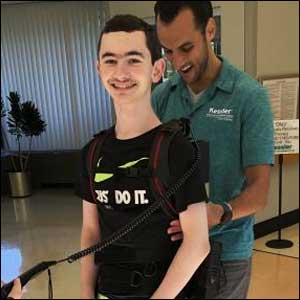
You Make a Brighter Future for Tyler
After Tyler Brown sustained a traumatic brain injury (TBI), doctors weren’t sure if he was going to make it. But after receiving physical therapy and the latest robotic exoskeleton technology as part of a Kessler Foundation research study, Tyler proved them wrong.
By walking in the Ekso by Ekso Bionics, he gained strength and improved his balance —moving from a wheelchair to walking completely on his own.
Tyler, who has come further than ever imagined, dreams of becoming a physical therapist thanks to donors like you.
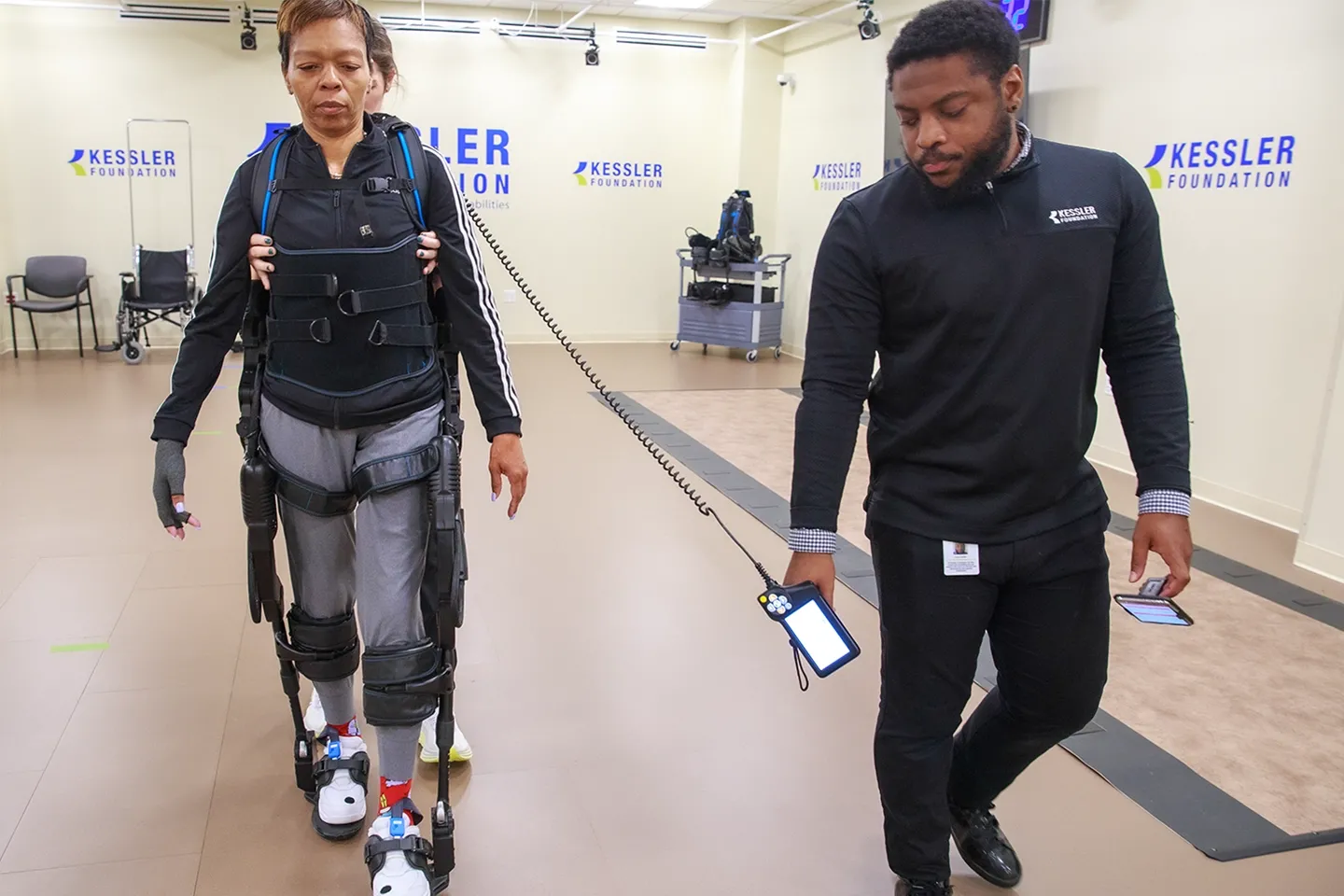
Join a Research Study Today
